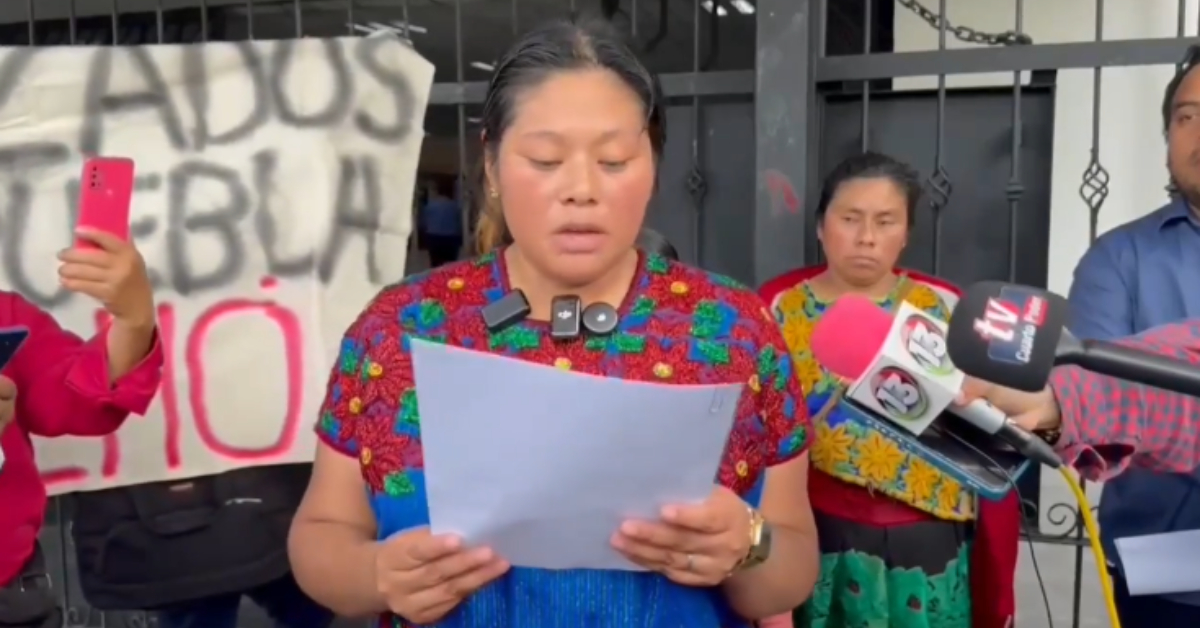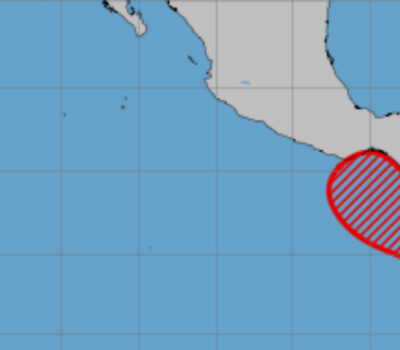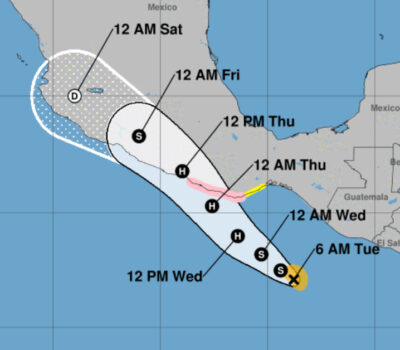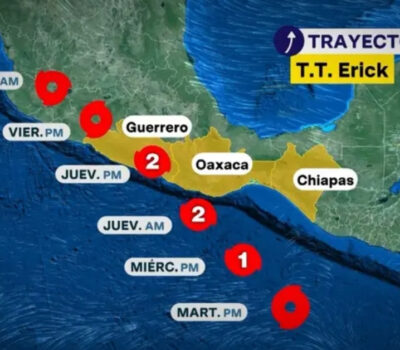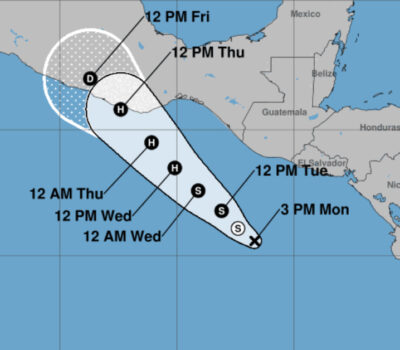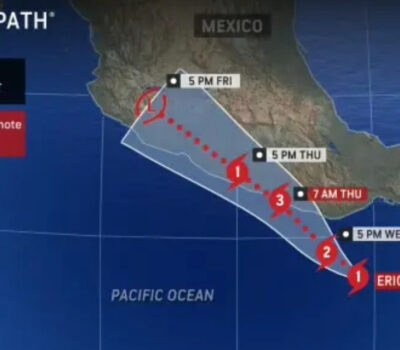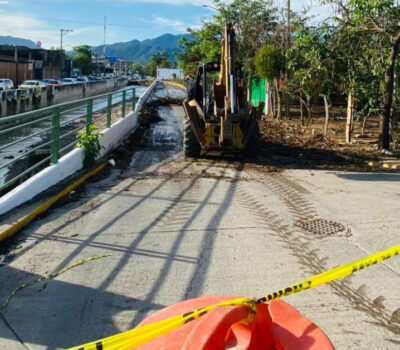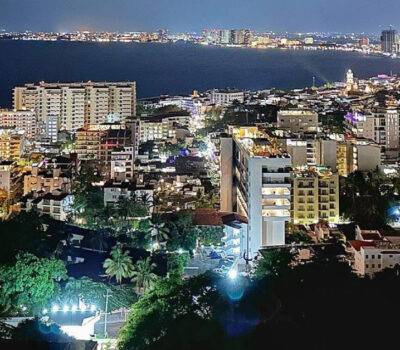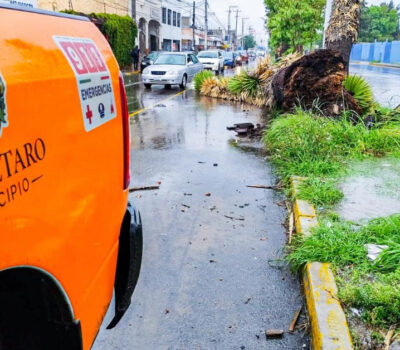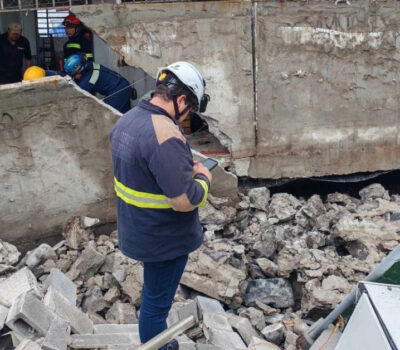Fourteen Tzotzil families displaced by violence in Chenalhó call on Chiapas Governor Eduardo Ramírez for relocation, housing, and basic rights after nine years in precarious conditions.
More than a dozen Indigenous Tzotzil families, displaced from their homes by violence in the highlands of Chiapas, issued a renewed plea to the state government this week, calling for a “comprehensive relocation” after nearly a decade of living in makeshift shelters without basic services.
Araceli Cruz, spokesperson for the 14 displaced families, addressed the media on Monday in San Cristóbal de las Casas, where the families currently reside in a temporary settlement. She reminded the public and state officials that their forced displacement began in 2016, when clashes between armed groups in the municipality of Chenalhó forced them to flee their ancestral homes.
“Nine years have passed since the tragic forced displacement we suffered,” Cruz said. “Since then, we have lived in conditions of extreme vulnerability.”
In a deeply personal appeal, Cruz also recalled the disappearance and murder of her relative, Guadalupe Cruz Hernández, during the early years of the displacement. The unresolved crime continues to haunt the community as a symbol of the violence that upended their lives and the lack of justice they have received.
The families, made up of children, elders, and entire generations of the Tzotzil community, now live in cramped, improvised shelters constructed from tin and tiles. With no access to proper housing, clean water, or medical services, they are especially vulnerable to the elements—particularly in San Cristóbal de las Casas, a region prone to extreme weather and projected to be affected by up to 20 tropical cyclones this season.
“We are demanding justice,” said Cruz. “We want a definitive solution, a comprehensive relocation that will allow us to rebuild our lives in peace with access to housing, land, healthcare, education, and work.”
The displaced community is appealing directly to the new governor of Chiapas, Eduardo Ramírez Aguilar, asking for an immediate and structured plan to secure their safety and dignity. According to Cruz, there has been no transparent roadmap or commitment from the state to address their long-term needs.
Camps such as the one where these Tzotzil families live have existed for years in Chiapas, often with minimal oversight or resources from local authorities. Many residents say they have had to improvise just to survive. Alonso Gutiérrez, a father of eight, described the situation as “terrible” and explained how residents have tried to fortify their shelters against the weather.
“Water and cold get in through the roof,” Gutiérrez said. “The ones who suffer the most are the children and babies. We’ve covered the roof with plastic, but the sun and rain destroy it.”
Gutiérrez, also a member of the Tzotzil community, said that after nine years, the families have become used to being ignored by government institutions. Still, they continue to raise their voices, hoping someone will listen.
The plight of these 14 families is not unique. According to estimates from human rights groups, between 16,000 and 21,000 people have been internally displaced in Chiapas in recent years due to violence, agrarian disputes, and organized crime. However, no official census has been released, and many communities fall through the cracks in state and federal policy.
Forced displacement in Chiapas is a complex issue rooted in long-standing land conflicts, political tensions, and the presence of armed groups in rural Indigenous areas. The phenomenon has worsened in recent years, with multiple Indigenous communities reporting threats, attacks, and property seizures by rival groups or paramilitaries. Once forced to flee, many families find themselves abandoned by authorities, with no path toward safe return or permanent relocation.
Despite recent changes in state leadership, advocates say the government’s response remains inadequate. Calls for inclusive policies, proper housing, and reparations have yet to translate into action.
Human rights organizations have long criticized the lack of a state mechanism to address internal displacement in Mexico. Although the federal government approved a General Law on Forced Internal Displacement in 2019, implementation has been slow and inconsistent across states. Chiapas, one of the regions most affected by displacement, has yet to establish a reliable protocol to assist victims.
The 14 Tzotzil families say they are tired of waiting.
“How much longer do we have to live like this?” asked Cruz. “Our children are growing up in these conditions. We need a solution—not tomorrow, but now.”
Fourteen Tzotzil families displaced by violence in Chenalhó call on Chiapas Governor Eduardo Ramírez for relocation, housing, and basic rights after . . .

